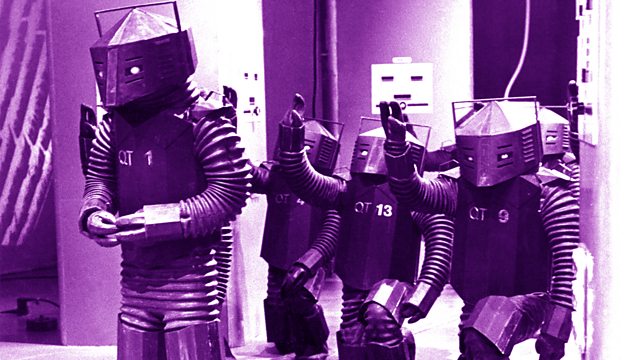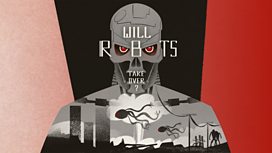More human than human
Robots are becoming present in our lives, as companions, carers and as workers. Adam Rutherford explores our relationship with these machines and asks if they have to be humanoid.
Robots are becoming present in our lives, as companions, carers and as workers. Adam Rutherford explores our relationship with these machines. Have we made them to be merely more dextrous versions of us? Why do we want to make replicas of ourselves? Should we be worried that they could replace us at work? Is it a good idea that robots are becoming carers for the elderly?
Adam Rutherford meets some of the latest robots and their researchers and explores how the current reality has been influenced by fictional robots from films. He discusses the need for robots to be human like with Dr Ben Russell, curator of the current exhibition of robots at the Science Museum in London. In the Bristol Robotics Laboratory Adam meets Pepper, a robot that is being programmed to look after the elderly by Professor Praminda Caleb-Solly. He also interacts with Kaspar, a robot that Professor Kerstin Dautenhahn at the University of Hertfordshire has developed to help children with autism learn how to communicate better.
Cultural commentator Matthew Sweet considers the role of robots in films from Robbie in Forbidden Planet to the replicants in Blade Runner. Dr Kate Devlin of Goldsmiths, University of London, talks about sex robots, in the past and now. And Alan Winfield, Professor of Robot Ethics at the Bristol Robotics Laboratory, looks ahead to a future when robots may be taking jobs from us.
Last on
More episodes
![]()
Will robots take over?
Adam Rutherford asks whether or not humanity will be enslaved by intelligent robots.
Broadcasts
- Tue 14 Feb 2017 11:00大象传媒 Radio 4
- Mon 20 Feb 2017 21:00大象传媒 Radio 4
Seven sci-fi predictions about robots that came true
How Isaac Asimov foresaw our relationship with robots and AI 70 years ago.


